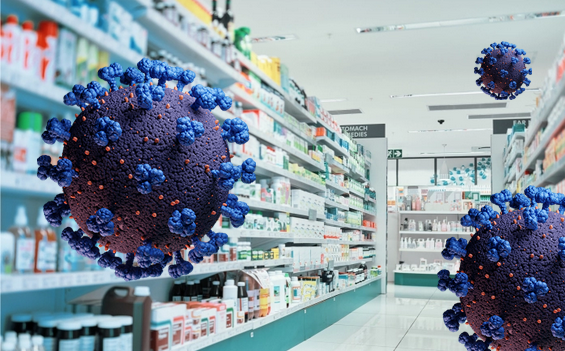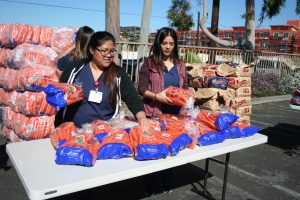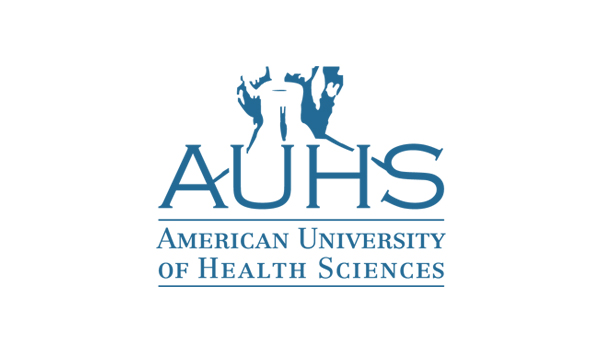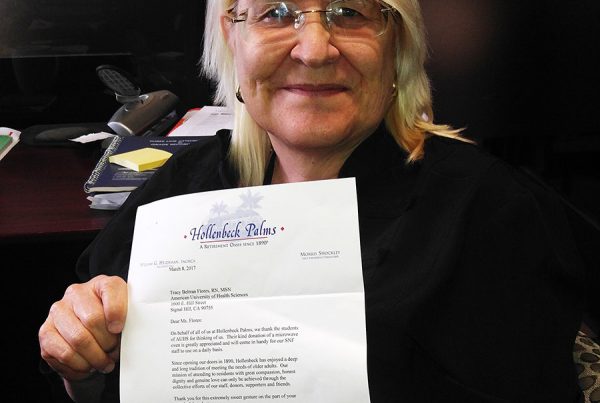By: Christine Han, Pharm.D
Assistant Professor, School of Pharmacy
 Commitment to their community drove many pharmacists to go above and beyond their usual standard of service to ensure patients had access to crucial medicines as fear of infection with COVID-19 kept many older patients from leaving home. In other cases, the local pharmacist became the only healthcare professional patients could see in person as clinics and hospitals instituted pandemic precautions.
Commitment to their community drove many pharmacists to go above and beyond their usual standard of service to ensure patients had access to crucial medicines as fear of infection with COVID-19 kept many older patients from leaving home. In other cases, the local pharmacist became the only healthcare professional patients could see in person as clinics and hospitals instituted pandemic precautions.
Many independent pharmacists reported that their pharmacies now delivers 90% of its prescriptions, as many of his patients remain afraid to leave their homes because of COVID-19. That comes to about 150 prescriptions every day.
A survey published by the NCPA June 1 found that 82% of community pharmacists expect to continue expanded home delivery and curbside service.
Community pharmacists also plan to continue other services that they began to offer or enhanced in the last few months.
While three-quarters of the pharmacists surveyed had not provided point-of-care testing prior to the pandemic, 61% anticipated that they and other local pharmacies would test for a variety of illnesses going forward. The U.S. Department of Health and Human Services authorized testing for COVID-19 at pharmacies in April, and about 70% of states had changed their regulations to permit testing at pharmacies by early June.
Testing represents just one aspect of the expanded scope of practice pharmacists have seen over the last few months, and many anticipate that they will perform more healthcare services on a regular basis.
Additional services include offering vaccinations, which had been authorized in many states before the pandemic. In 2019, 73% of community pharmacies offered immunizations, but only 25% provided more than the influenza vaccine. When a vaccine for the SARS-CoV-2 virus is developed, many pharmacists expect to add it to their services. In late May, Minnesota passed the first law in the nation, allowing pharmacists to administer the SARS-CoV-2/COVID-19 vaccine when one is approved.
More than half of respondents to the NCPA survey expected more pharmacies to provide immunizations. This would be a great time to start offering an expanded range of vaccines, as the CDC has reported a sharp drop in immunizations among children during the pandemic.
About American University of Health Sciences
AUHS is a Christian based, minority-serving university, which educates students for careers in the healthcare professions. AUHS emphasizes the values of faith in God, love of humankind, and belief that all people have a right to healthcare and deserve a good quality of life based on the wellness of body, mind, and spirit. The university celebrates diversity and reaches out to groups currently underrepresented in healthcare and research. AUHS provides the undergraduate and graduate curriculum, hands-on practical training and supportive environment required to create competent and compassionate healthcare professionals.
American University of Health Sciences is accredited by the WASC Senior College and University Commission (WSCUC), 985 Atlantic Avenue, Suite 100, Alameda, CA 94501, 510.748.9001.
Connect with our social networks
AUHS Facebook
AUHS Instagram
AUHS Twitter






